
Composer-pianist Satoko Fujii's new Orchestra Berlin, a ten-piece ensemble, presents a powerful work written specifically for this group in thought-provoking compositions of and uninhibited energy, with performers including saxophonists Gebhard Ullmann, Paulina Owczarek & Matthias Schubert, trombonist Matthias Muller, bassist Jan Roder, and drummers Peter Orins and Michael Griener.
In Stock
Quantity in Basket: None
Log In to use our Wish List
Shipping Weight: 3.00 units
EU & UK Customers:
Discogs.com can handle your VAT payments
So please order through Discogs
Sample The Album:
Matthias Schubert-tenor sax
Gebhard Ullmann-tenor sax
Paulina Owczarek-baritone sax
Richard Koch-trumpet
Lina Allemano-trumpet
Natsuki Tamura-trumpet
Matthias Muller-trombone
Jan Roder-bass
Michael Griener-drums
Peter Orins-drums
Click an artist name above to see in-stock items for that artist.
Includes a 6 page color booklet with text in English and Japanese.
UPC: 4562169330474
Label: Libra
Catalog ID: 211-047
Squidco Product Code: 25687
Format: CD
Condition: New
Released: 2018
Country: Japan
Packaging: Cardboard Gatefold
Recorded at Zentri-fuge, in Berlin, Germany, on April 2nd, 2017, by Ti To.
"On Ninety-Nine Years, composer-pianist Satoko Fujii premieres her first compositions written expressly for Orchestra Berlin. The ten-piece ensemble responds with a full-throated, buoyant performance that makes the album one of the most exciting in her large catalog of big band releases.
Fujii convened Orchestra Berlin in 2015 to record Ichigo Ichie, a commission from the Chicago Jazz Festival, written for and originally performed by a ten-piece ensemble of Chicago musicians. Fujii, who was living in Berlin at the time, wanted to record the piece, so she asked German saxophonist Gebhard Ullmann, for whom she'd written arrangements heard on his 2004 Soul Note CD, Big Band Project, to put together a group to record her new composition. She had never heard or played with most of them. "I really didn't know how they would play together or how the music would sound," Fujii says. "I didn't expect them to play so hot, with so much energy."
Although composer-conductor and orchestra hadn't worked together before, they clicked immediately. In his 4-star review of the album in All About Jazz, Budd Kopman wrote, "This is edge-of-the-seat music that has a palpable central line of energy flowing through it... frequently astonishing in its impact..."
"Their sound made me want to write this project," Fujii says. "I probably wouldn't have written these pieces if I hadn't done Ichigo Ichie with them."
On Ninety-Nine Years, Fujii digs deep to bring out the special character of the band and its soloists. Her compositions call on the uninhibited energy of the group and leave plenty of room for soloist to contribute their own ideas. Her insightful conducting heightens the drama of each piece, setting off both writing and improvising to best effect.
The album opens with "Unexpected Incident" (the Japanese government's euphemism for the Fukushima nuclear disaster), a showcase for the band in all its bold, energized glory. The composition features the steamrolling power of the band's tenor saxophonists, with Ullmann plowing ahead over the ensemble early in the piece, Matthias Schubert locked in a fierce duet with trombonist Matthias Müller, and concludes with Ullman's growling, raving unaccompanied solo.
In an unaccompanied solo, bassist Jan Roder opens "Ninety-Nine Years," a dedication to Fujii's late mother-in-law, with his strong sense of line and development. Drummers Peter Orins and Michael Griener and baritone saxophonist Paulina Owczarek enter one by one, building to an ebbing and flowing collective improvisation. Then Ullmann once again powers up, launching long flexing lines that erupt into contoured waves of pure sound. Fujii cues in an affecting, melancholy melody from the ensemble, contrasting sorrow and compassion with Ullmann's unquenchable vitality.
The percussionists display their close rapport and command of rhythm, groove, and texture in duets at the beginning of "On the Way," before trumpeter Natsuki Tamura lightens the mood with a hilarious solo utilizing vocal sounds and odd-ball mutterings.
Tamura suggested the title of "Oops," whose tricky rhythms initially gave the horn players problems. Schubert once again brings excitement and grandeur to the proceeding in his wild, almost operatic solo. "Follow the Idea" brings the album to a close with another burst of white hot energy and wild swings between dead serious intensity and high-spirited humor.
Most jazz composers work with one orchestra over time, but Fujii maintains no less than five. Each one has its distinct character, which she loves to explore. Fujii returned to Orchestra Berlin because, she says, "I think they bring out some part of me that the other bands don't." "-Libra
Includes a 6 page color booklet with text in English and Japanese.
Artist Biographies
• Show Bio for Matthias Schubert "Matthias Schubert (born April 18, 1960 in Kassel ) is a German jazz musician (tenor saxophone, oboe and composition). Schubert had oboe lessons as a teenager. The saxophonists Allan Praskin and Melvin Phillips introduced him to jazz. He studied from 1979 to 1983 at the University of Music and Performing Arts Hamburg with Andy Scherrer, Herb Geller and Walter Norris. He played for a long time in the Euro Jazz Band, the Graham Collier Band and the Marty Cook Group, but also with the groups of Albert Mangelsdorff, Manfred Bründl and others. He played in the quartet with Simon Nabatov, Lindsey Horner and Tom Rainey during the 1990s. He forms a trio with Carl Ludwig Hübsch and Wolter Wierbos. He has founded the James Choice Orchestra with Hübsch, Frank Gratkowski and Norbert Stein. He also played with Karl Berger, Klaus King, Kathrin Lemke, Jeanne Lee, Joachim Ullrich, Andreas Willers, Xu Fengxia, Scott Fields, Uwe Oberg,Uli Böttcher and Alois Kott. In 2001 he was appointed as a lecturer at the University of Music, Drama and Media Hanover." ^ Hide Bio for Matthias Schubert • Show Bio for Gebhard Ullmann "Born on November 2, 1957 in Bad Godesberg, Germany saxophonist (tenor and soprano), bass clarinetist, bass flutist and composer Gebhard Ullmann studied medecine and music in Hamburg and moved to Berlin in 1983.Since then he has recorded more than 50 CDs as a leader or co-leader for prestigious labels such as Soul Note (Italy), Leo Records (UK), Between The Lines (Germany), CIMP (USA), NotTwo Records (Poland), Clean Feed (Portugal) Unit Records (Switzerland) and others. For many years he is considered one of the leading personalities in both the Berlin and international music scenes and has received numerous awards for his work including the Julius Hemphill Composition Award in two categories ('99), the Deutsche Phonoakademie award ('83), one of the first SWF Jazz Awards ('87) and the nomination best-jazz-CD-of-the-year by the German Schallplattenkritik for his CD Tá Lam in 1995. His CDs Final Answer (2002) The Bigband Project (2004) New Basement Research (2008) News? No News! (2010) Mingus! (2011) Clarinet Trio 4 (2012) were all listed in Downbeat Magazine among the best CDs of those years. The CD Transatlantic received the prestigious Choc of the French Jazz Magazine in 2012. Since 2005 Gebhard Ullmann is listed in the Downbeat Critics Poll, 2015 for the first time in three categories. Since 1993 Ullmann was a recording artist for Soul Note and has been living in New York City and Berlin. He has toured with his music throughout Europe as well as Africa, the Middle East, Canada, New Zealand, the USA, South East Asia, Mexico and China and performed on most of the world's most prestigious jazz festivals." ^ Hide Bio for Gebhard Ullmann • Show Bio for Paulina Owczarek Berlin based saxophonist Paulina Owczarek is a member of Sambar and Satoko Fujii Orchestra Berlin. ^ Hide Bio for Paulina Owczarek • Show Bio for Richard Koch "Richard Koch, trumpet plays in many different genres and styles. The physicalness of music is most important to his work. This led to numerous projects fusing music with other forms of art (dance, fine arts, speech) but also resulted in performances on big stages in the pop- and classical sector. 1979 born in Tulln, Austria 1995 - 1998 studies at the Conservatory of Music and University of Music Vienna with Franz Hautzinger 1997 founds the Duo Space Madness with double bass player Christian Weber from Zurich 1998 - 2000 studies at University of Music and Performing Arts Stuttgart, Germany 1998 founds the Duo Oral Office with speech and voice artist Christian Reiner, since then intensive research on fusing speech and music, collaboration with writer Wolf Wondratschek 2000 - 2003 studies at the University of the Arts Berlin 2001 founds the project Ritsche & Zast with painter Thomas Bratzke, since 2007 Ritsche, Zast & Marien with drummer Christian Marien, intensive research on fusing drawing and music, production of short films, several exhibitions and numerous performances in Europe and Japan 2002 becomes member of the band Olaf Ton, several tours, various projects between Jazz and New Music with musicians like Frank Gratkowski and Clayton Thomas 2003 begins to work with dancers on pieces and performances, like Julyen Hamilton, Kadir "Amigo" Memis and Hans-Werner Klohe first solo performances in and around Berlin 2004 founds the artist group TTT, working on experimental childrens' theater, guest performances all over Europe 2005 co-initiates the Tagtool, a tool to draw and animate with light in realtime, performances in between music and new media all over Europe 2006 - 2010 numerous performances on big stages in the pop sector with Miss Platnum, Peter Fox and The Notwist 2010 stage role in Beethoven's Fidelio at the Komische Oper Berlin becomes member of the Berlin Art Orchestra 2011 becomes member of the Andromeda Mega Express Orchestra, numerous performances in Europe and South America two-times grant of SKE-Fonds / Austro Mechana, winner of the Berlin Jazz & Blues - Award Richard Koch currently lives in Berlin" ^ Hide Bio for Richard Koch • Show Bio for Lina Allemano "Lina Allemano is a Canadian trumpeter, improviser, and composer based in Toronto ON since 1993, originally hailing from Edmonton AB. She has an active international career, performing and recording cutting-edge contemporary music primarily in free-jazz/improvised/experimental/avant-garde settings, but also working in a wide array of other genres. For the past several years, Lina has been splitting her time between Toronto and Berlin, with one foot in Berlin's flourishing and uncompromising art-music scene and the other foot in Toronto's vibrant but somewhat under-the-radar experimental-music scene. Lina was featured as one of the top innovative trumpeters for the future in DownBeat Magazine, and her trumpet playing, compositions, and artistic vision have gained her international recognition as being "adventurous, expressive, compelling, forward thinking, inventive, and sophisticated". As well as leading her longtime acoustic free-jazz band, LINA ALLEMANO FOUR, which celebrated its 10th anniversary in 2015, she also fronts the electric improvising group, TITANIUM RIOT. She has been touring extensively with both bands all across Europe, USA, and Canada for many years. (See below for more info on these groups). Lina is also busy collaborating with a very long and ever-expanding list of exciting international improvisers, and is a member of many other active creative groups as a side-person. As a composer, she has been commissioned to compose works for such ensembles as Vancouver's NOW Orchestra. Lina has released 8 of her own internationally-acclaimed albums on her Lumo Records label - 6 with LINA ALLEMANO FOUR featuring her original compositions: Sometimes Y (2017), Live at the Tranzac (2012), Jargon (2010), Gridjam (2008), Pinkeye (2006), and Concentric (2003) - and 2 with TITANIUM RIOT: Squish It! (2017), Kiss the Brain (2014). Her trumpet playing can also be heard on over 40 other albums as well as countless film and television soundtracks. Lina has received support from Canada Council for the Arts, Ontario Arts Council, Toronto Arts Council. Lina is a Yamaha Artist." ^ Hide Bio for Lina Allemano • Show Bio for Natsuki Tamura "Japanese trumpeter and composer Natsuki Tamura is internationally recognized for a unique musical vocabulary that blends extended techniques with jazz lyricism. This unpredictable virtuoso's seemingly limitless creativity led François Couture in All Music Guide to declare that "... we can officially say there are two Natsuki Tamuras: The one playing angular jazz-rock or ferocious free improv... and the one writing simple melodies of stunning beauty... How the two of them live in the same body and breathe through the same trumpet might remain a mystery." Born on July 26, 1951, in Otsu, Shiga, Japan, Tamura first picked up the trumpet while performing in his junior high brass band. He began his professional music career after he graduated from high school, playing in numerous bands including the World Sharps Orchestra, Consolation, Skyliners Orchestra, New Herd Orchestra, Music Magic Orchestra, and the Satoko Fujii Ensemble, as well as in his own ensemble. He was the trumpeter for numerous national television shows in Japan from 1973-1982, including The Best Ten, Music Fair, Kirameku Rhythm and many others. In 1986, he came to the United States to study at Berklee College of Music. He then returned to his native Japan to perform and teach at the Yamaha Popular Music School and at private trumpet studios in Tokyo and Saitama, before coming back to the US to study at New England Conservatory. He made his debut recording as a leader in 1992 on Tobifudo. In 1997 he released the duo album How Many? with pianist Satoko Fujii, who is also his wife. It marked the beginning of an artistic collaboration that continues up to the present. The duo has made a total of five CDs over the years, including 2012's Muku. "Muku contains some truly stunning, spine-tingling music...its sheer beauty and elegance is what lingers most," wrote Dave Wayne in All About Jazz. "Fujii's orchestral technique, clear chromatic lines and "prepared piano" devices contrast effectively with Tamura's arsenal of extended techniques which he executes with a warm, vocalized tone throughout the trumpet's full range," Ted Panken said in his four-star DownBeat review. Tamura's collaborations with Fujii reveal an intense musical empathy, and have garnered wide popular and critical acclaim. Jim Santella in All About Jazz described their synergy well in his glowing review of the couple's 2006 Not Two disc, In Krakow, In November: "... the creative couple forcefully demonstrates what can happen when you let your musical ideas run free... Similarly, Tamura's mournful trumpet can fly high or low in search of his next surprise. Oftentimes, they both issue plaintive moans that sing like angels on high." Their sixth duet album is due out in 2017. In 1998, Tamura began recording his unaccompanied solo performances. The stunning solo trumpet debut release, A Song for Jyaki earned a Writers Choice 1998 in Coda magazine, and Andy Bartlett wrote in Coda, "A fabulous set of hiccuping leaps, drones and post-bop trumpet hi-jinx. Tamura goes from growling lows to fluid, free solo runs and echoes not only Don Cherry's slurring anti-virtuosic chops but also Kenny Wheeler's piercing highwire fullness." He followed it up in 2003 with KoKoKoKe, which Jon Davis described in Exposé as "Buddhist chants from an alien planet." Grego Applegate Edwards explains that on Tamura's most recent solo album, 2013's Dragon Nat, "he pares down to focus on simple unwinding melodic material, the sound of his trumpet as a sensuous thing, a periodicity. Taken as a whole it is a kind of environmental tone poem for the moment Natsuki is in now." 2003 was a breakout year for Tamura as a bandleader, with the release of Hada Hada, featuring his free jazz-avant rock quartet with Fujii on synthesizer. Peter Marsh of the BBC had this to say about the high voltage CD: "Imagine Don Cherry woke up one morning, found he'd joined an avant goth-rock band and was booked to score an Italian horror movie. It might be an unlikely scenario, but it goes some way to describing this magnificent sprawl of a record." The quartet's 2004 Quartet release Exit was deemed "...a brilliantly executed set with a neon glow," by Dan McClenaghan in All About Jazz. In 2005, Tamura made a 180-degree turn in his music with the debut of his all acoustic Gato Libre quartet. Focusing on the intersection of European folk music and sound abstraction, the quartet featured Fujii on accordion, Kazuhiko Tsumura on guitar, and Norikatsu Koreyasu on bass. The quartet's poetic, quietly surreal performances have been praised for their "surprisingly soft and lyrical beauty that at times borders on flat-out impressionism," by Rick Anderson in CD Hotlist. Dan McClenaghan in All About Jazz described their fourth CD, Shiro, as "intimate, something true to the simple beauty of the folk tradition...Tamura's career has largely been about dissolving musical boundaries. With Gato Libre and Shiro, the trumpeter extends his reach even deeper into the prettiest, most accessible of his endeavors." After the unexpected passing of Norikatsu in 2012, Tamura added trombonist Yasuko Kaneko to the group. The new configuration has toured Europe and Japan and released its debut recording, DuDu, in 2014. "DuDu follows the winning formula of its predecessors but, as with the other discs, eschews the formulaic. The result is another sublimely satisfying, elegant record that brims with raw excitement and a reflective nostalgia," writes Hrayr Attarian in All About Jazz. With the tragic death of guitarist Kazuhiko Tsumura, Gato Libre is now a trio. They will release a CD and LP in 2017. In 2010, Tamura debuted a new electric quartet, First Meeting, featuring Fujii, drummer Tatsuhisa Yamamoto and electric guitarist Kelly Churko. Their first release, Cut the Rope, is "is a noisy, free, impatient album, and ranks among Fujii and Tamura's most accomplished," according to Steve Greenlee in the Boston Globe. While fronting groups and recording as a leader, Tamura has also played an integral role in nearly all of Satoko Fujii's many projects. He is featured on all of the CDs by Satoko Fujii's various orchestras (NY, Tokyo, Nagoya, Kobe, and Berlin) and has contributed original compositions and arrangements to each of their 19 critically celebrated albums. In addition, he was a featured soloist in the Satoko Fujii Quartet, her avant-rock free jazz group that also included Tatsuya Yoshida of The Ruins. Of his work on the quartet's 2003 release Minerva, Mark Keresman wrote in JazzReview.com, "Natsuki Tamura's trumpet has some of the stark, melancholy lyricism of Miles, the bristling rage of late 60s Freddie Hubbard and a dollop of the extended techniques of Wadada Leo Smith and Lester Bowie." Tamura is a vital member of Fujii's Min-Yo Ensemble as well. "Tamura tempers his avant-garde antics with an innate lyricism," wrote Steve Smith of Time Out New York in his review of Fujin Raijin, the intimate acoustic quartet's debut CD. He's also been singled out for his contributions to Fujii's ma do ensemble. "With Tamura's brash and glowing lines, the band incorporates mesmeric ostinatos and thrusting opuses into the grand schema," Glenn Astarita wrote in Ejazznews about their first CD, Desert Ship. Collaborative groups also play an important role in Tamura's career. Most recently, Tamura joined Fujii and two French musicians, trumpeter Christian Pruvost and drummer Peter Orins, to form Kaze, which made their recording debut in 2011. In 2015, they released their third album, Uminari, which Jazz Magazine (France) called, "a compelling example of free jazz today. Compositions are perfectly scripted, with a well-oiled interaction and playing of beautiful power..." The collaborative trio Junk Box, which he co-founded in 2006 along with pianist Fujii and drummer John Hollenbeck, plays Fujii's "composed improvisations," graphic scores that take "ensemble dynamics to great creative heights," says Kevin Le Gendre in Jazzwise. Their music "is full of bluster and agitation that nonetheless retains moments of great melodic beauty, usually by way of concise, pertly pretty motifs that trumpeter Tamura plays in between bursts of withering roars that often dissolve into austere overtones." Their premiere CD, Fragment, appeared in 2006. As Daniel Spicer wrote of Fragment in JazzWise, "Tamura spits out gloriously rude Lester-Bowie-like snorts, lows like a herd of robotic cattle or makes like a wheezy howler monkey... Cool and clever." Glenn Astarita of All About Jazz declared it "Required listening." Along the way, there have been one-off cooperative groups and sideman appearances for Tamura as well. In the Tank, an ad hoc quartet with Fujii and electric guitarists Takayuki Kato and Elliott Sharp, is a "triumphant electro-acoustic adventure" according to Daniel Spicer of Jazzwise. "Think AMM meets blues guitar meets 1970s Miles Davis and you get some idea of the disc's flavor: a slow-moving panorama for the ears, where sounds are systematically added, repeated, refined, and replaced in turn," wrote Nate Dorward in Cadence. Tamura and Fujii were one of two piano/trumpet duos featured on the Double Duo Crossword Puzzle CD, a live recording with Dutch trumpeter Angelo Verploegen and pianist Misha Mengelberg. Tamura has also toured and recorded with saxophonist Larry Ochs' Sax and Drumming Core, and appeared on albums by drummer Jimmy Weinstein, saxophonist Raymond McDonald, and CDs by Japanese free-jazz pioneers trumpeter Itaru Oki and pianist Masahiko Sato. In 2014 he released Nax, a duet album with bassist Alexander Frangenheim. Tamua has toured throughout Japan, North America, and Europe, appearing at major jazz festivals, concert halls, and clubs." ^ Hide Bio for Natsuki Tamura • Show Bio for Matthias Muller "Matthias Müller was born 1971 in Zeven, Germany and starting playing trombone in the local trombone choir at the age of 10. From 1994 to 1999 he studied jazz-trombone at the Folkwang Hochschule in Essen, where he also made his first steps into improvised music. His CD "Bhavan", which was released in 2004, was produced by Chicago based musician and journalist John Corbett. In the same year he moved to Berlin and has since been regularly playing with internationally recognized improvisers such as John Edwards, Mark Sanders, George Lewis, Johannes Bauer, Jeb Bishop, Tobias Delius, Olaf Rupp, Paul Lovens, Toshimaru Nakamura, Clayton Thomas, Michael Vorfeld, Axel Dörner, and many more. He is a member of the 24-piece improvising ensemble, "Splitter Orchester", and was also a member of the "German-French Jazzensemble" under the direction of Albert Mangelsdorff. In addition, Müller is also active in the field of contemporary music, having worked with the Berlin-based ensembles "Xenon", "Work In Progress", and "Zinc & Copper Works". He also took part in the performance and CD-recording of composer Mark Andre's opera "...22, 13...". Müller has toured Africa, Asia, North America and many countries in Europe, having played on numerous festivals, and released more than 20 CDs of his own projects." ^ Hide Bio for Matthias Muller • Show Bio for Jan Roder "Jan Roder (* 1968 ) is a German jazz bassist. Roder studied music in Hanover. He began his career as a rock musician and lived longer periods in Brazil. In 1995 he came to Berlin, where he played touring and concerts with musicians such as Ulrich Gumpert, Ernst-Ludwig Petrowsky, Manfred Schoof, Uschi Brüning, Joachim Kühn, Aki Takase, Gunter Hampel, Mircea Tiberian and Axel Dörner. As a successor to Joachim Dette, he is the band Disappointment, together with Axel Dörner, Rudi Mahall and Uli Jenneßen, who, together with Alexander von Schlippenbach, has the complete work of Thelonious Monk in his repertoire. Together with Björn Lücker and Henrik Walsdorff, he is the group The Most. He is also a member of the Caciula Trio (with Maurice de Martin and Ben Abarbanel-Wolff ), JR 3, the Silke Eberhard Quartet and the Zoran Terzic Trio, and performs as a duo of Maria Răducanu." ^ Hide Bio for Jan Roder • Show Bio for Michael Griener "Michael Griener, born in Nuremberg, Germany in 1968, began playing drums in 1982, lives in Berlin since 1994. Under the influence of the HOHE-UFER-concerts initiated by Günter Christmann he became involved early on in the various forms of Jazztradition, Free Improvisation and New Music, which led to a longer collaboration with Christmann in his Vario-projects (a.o. C.I.M.-Festival Den Haag 1990, Moers-Festival 1992, Wittener Tage für Neue Kammermusik1993). He has worked frequently with dancers, actors and poets (most recently in a project on Paul Celan with German writer Oskar Ansull). His duo KIMMO ELOMAA with electronic wizard jayrope received a grant by the city of Berlin in 2002 Received the 1. price as "most creative soloist" at the "New German Jazz Award" in 2006 His current projects include a.o.: Uli Gumpert Quartet, TGW (Thieke-Griener-Weber), a Duo with Ernst-Ludwig Petrowsky, Lacy Pool, Squakk and Carl-Ludwig Hübsch' Primordial Soup Michael Griener teaches jazz drumming at the University for Music "Carl Maria v. Weber" in Dresden and jazz-history and rhythm at the Jazzschule Berlin." ^ Hide Bio for Michael Griener • Show Bio for Peter Orins "After classical music study, Peter Orins learns the drums, first in a rock and afro-cuban music school, then at the Conservatoire National de Région of Lille in the jazz section, where he studies with Guy Gilbert, Jean-François Canape, Gérard Marais... He graduates in 1997. In the meantime, he studies musicology at university, improvisation with Fred Van Hove, composition with Jean-Marc Chouvel and Ricardo Mandolini. Playing jazz from the middle of the 90's, he plays in the bands that will create in 2000 the Circum collective : Impression (for which he composes, became Flu(o) in 2012), Quartet Base, Stefan Orins Trio. He coordinates the Circum collective till its fusion with the CRIME in 2010, and creates the Circum Grand Orchestra, band with the 10 musicians of Circum, for which he composes also occasionally. At the same time Peter Orins get in the CRIME projects, improvised and experimental music collective also based at la malterie in Lille. He plays especially in La Pieuvre, big improvisation orchestra conducted by Olivier Benoit (nowadays Artistic Director of L'Orchestre National de Jazz). It's with the Crime that he'll develop his solo work (drums and electronic with Pure Data application), and improvised and experimental projects with David Bausseron, Laurent Rigaut, Ivann Cruz, Christian Pruvost, Jean-Luc Guionnet, Benjamin Duboc, Yanik Miossec, Falter Bramnk, ... in bands like DBPO, De Nouvelles Erreurs, Signal Box, Electropus, Ternoy/Cruz/Orins (that will become Toc, free-rock progressive band)... In 2006, he leads a french-vietnamese project called Hué/Circum with the support of Region Nord Pas de Calais, which combines 4 musicians from Circum and 3 traditional vietnamese musicians from Hué (tour in Vietnam, Japan and France, from 2006 to 2009). In 2010, he creates a french-japanese quartet with pianist Satoko Fujii and trumpet players Natsuki Tamura and Christian Pruvost, band for which he composes with Satoko Fujii. Several international tours with this band (Japan, Israel, Germany, France, USA, Canada). In 2011, Ivann Cruz, guitar player from Muzzix, and Maciej Garbowski, polish double-bass player, invite him to play in their quartet with the finnish saxophone player Kari Heinila. He also collaborates with theatre, composes for cinema or animation movies, dance... Since the creation of Muzzix in 2010, Peter Orins coordinates the artistic direction of the collective. He played with : Sophie Agnel, Jean-Luc Guionnet, Benjamin Duboc, Radu Malfati, Steve Dalachinsky, Andrew D'Angelo, Petr Cancura, Josh Sinton, Curtis Hasselbring, Joe Morris, Rene Hart, David Miller, Frank London, Nate Wooley, Renee Baker, Ernest Dawkins, Dave Rempis, Jeb Bishop, Michael Zerang, Jacques Di Donato, François Corneloup, Norbert Lucarain, Sylvain Kassap, Alain Vankenhove, Camel Zekri, ..." ^ Hide Bio for Peter Orins
7/9/2025
Have a better biography or biography source? Please Contact Us so that we can update this biography.
7/9/2025
Have a better biography or biography source? Please Contact Us so that we can update this biography.
Have a better biography or biography source? Please Contact Us so that we can update this biography.
7/9/2025
Have a better biography or biography source? Please Contact Us so that we can update this biography.
7/9/2025
Have a better biography or biography source? Please Contact Us so that we can update this biography.
7/9/2025
Have a better biography or biography source? Please Contact Us so that we can update this biography.
7/9/2025
Have a better biography or biography source? Please Contact Us so that we can update this biography.
7/9/2025
Have a better biography or biography source? Please Contact Us so that we can update this biography.
7/9/2025
Have a better biography or biography source? Please Contact Us so that we can update this biography.
7/9/2025
Have a better biography or biography source? Please Contact Us so that we can update this biography.
Track Listing:
1. Unexpected Incident 10:26
2. Ninety-Nine Years 12:58
3. On The Way 10:35
4. Oops! 10:10
5. Follow The Idea 6:08
Satoko Fujii & Natsuki Tamura's Libra Label
Improvised Music
Jazz
Free Improvisation
Japanese & Asian Improv/Rock
European Improvisation, Composition and Experimental Forms
Large Ensembles
Staff Picks & Recommended Items
Satoko Fujii 60th Birthday Releses
Top Sellers for 2018 by Customer Sales
Jazz & Improvisation Based on Compositions
Last Copy of Items that will not be restocked...
Search for other titles on the label:
Libra.











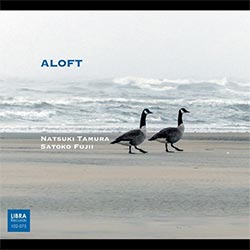
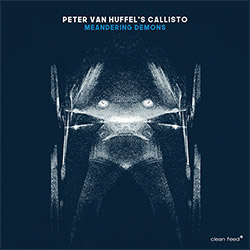
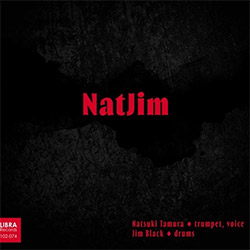

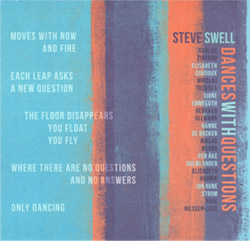

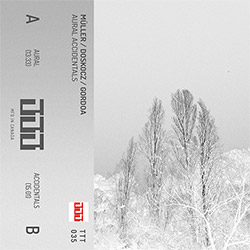
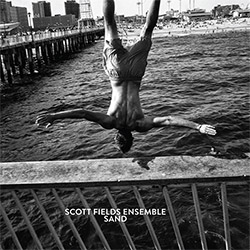


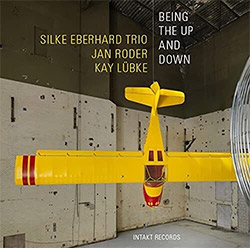





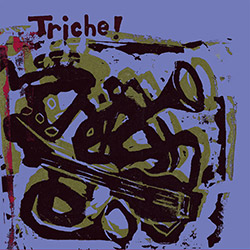




![BlueRing Improvisers: Materia [2 CDs]](https://www.teuthida.com/productImages/misc4/36513.jpg)








![Wheelhouse (Rempis / Adasiewicz / McBride): House And Home [VINYL]](https://www.teuthida.com/productImages/misc4/36462.jpg)
![+DOG+: The Light Of Our Lives [2 CDs]](https://www.teuthida.com/productImages/misc4/36009.jpg)


![Parker, Evan / Jean-Marc Foussat: Insolence [VINYL]](https://www.teuthida.com/productImages/misc4/36398.jpg)










![Deupree, Jerome / Sylvie Courvoisier / Lester St. Louis / Joe Morris: Canyon [2 CDs]](https://www.teuthida.com/productImages/misc4/36404.jpg)



![Eventless Plot | Haarvol: The Subliminal Paths [CASSETTE + DOWNLOAD]](https://www.teuthida.com/productImages/misc4/36232.jpg)










![Eventless Plot | Francesco Covarino: Methexis [CASSETTE + DOWNLOAD]](https://www.teuthida.com/productImages/misc4/36231.jpg)



![Das B (Mazen Kerbaj / Mike Majkowski / Magda Mayas / Tony Buck): Love [VINYL]](https://www.teuthida.com/productImages/misc4/36329.jpg)


![Eternities: Rides Again [CASSETTE]](https://www.teuthida.com/productImages/misc4/36247.jpg)
![Lopez, Francisco: Untitled (2021-2022) [2 CDs]](https://www.teuthida.com/productImages/misc4/36438.jpg)






![Money : Money 2 [2 CDs]](https://www.teuthida.com/productImages/misc4/35894.jpg)




![Klinga, Erik: Elusive Shimmer [VINYL]](https://www.teuthida.com/productImages/misc4/36258.jpg)
![CHANGES TO blind (Phil Zampino): Volume 9 - I Wave on a Fine Vile Mist [CD + DOWNLOAD]](https://www.teuthida.com/productImages/misc4/36061.jpg)

![Wallmart / Rubbish: Asset Protection [split CD]](https://www.teuthida.com/productImages/misc4/35900.jpg)


![+Dog+: The Family Music Book Vol. 5 [2 CDs]](https://www.teuthida.com/productImages/misc4/35897.jpg)
![Kuvveti, Deli : Kuslar Soyledi [CASSETTE w/ DOWNLOAD]](https://www.teuthida.com/productImages/misc4/36107.jpg)

![Brown, Dan / Dan Reynolds: Live At The Grange Hall [unauthorized][CASSETTE]](https://www.teuthida.com/productImages/misc4/36245.jpg)








![Palestine, Charlemagne / Seppe Gebruers: Beyondddddd The Notessssss [VINYL]](https://www.teuthida.com/productImages/misc4/36206.jpg)
![Palestine, Charlemagne / Seppe Gebruers: Beyondddddd The Notessssss [NEON GREEN VINYL]](https://www.teuthida.com/productImages/misc4/36207.jpg)

![Laubrock, Ingrid: Purposing The Air [2 CDs]](https://www.teuthida.com/productImages/misc4/35639.jpg)

![Yoko, Ono / The Great Learning Orchestra: Selected Recordings From Grapefruit [2 CDs]](https://www.teuthida.com/productImages/misc4/35841.jpg)









![Zorn, John / JACK Quartet: The Complete String Quartets [2 CDs]](https://www.teuthida.com/productImages/misc4/35609.jpg)

![Lonsdale, Eden: Dawnings [2 CDs]](https://www.teuthida.com/productImages/misc4/35480.jpg)



![Sorry For Laughing (G. Whitlow / M. Bates / Dave-Id / E. Ka-Spel): Rain Flowers [2 CDS]](https://www.teuthida.com/productImages/misc4/35985.jpg)

![Rolando, Tommaso / Andy Moor : Biscotti [CASSETTE w/ DOWNLOADS]](https://www.teuthida.com/productImages/misc4/36106.jpg)


![Electric Bird Noise / Derek Roddy: 8-10-22 [CD EP]](https://www.teuthida.com/productImages/misc4/35970.jpg)







![Elephant9 : Mythical River [VINYL]](https://www.teuthida.com/productImages/misc4/34624.jpg)



![Elephant9 with Terje Rypdal: Catching Fire [VINYL 2 LPs]](https://www.teuthida.com/productImages/misc4/35355.jpg)
![Deerlady (Obomsawin, Mali / Magdalena Abrego): Greatest Hits [VINYL]](https://www.teuthida.com/productImages/misc4/34876.jpg)







![Surplus 1980: Illusion of Consistency [CD]](https://www.teuthida.com/productImages/misc4/35069.jpg)
![Staiano, Moe: Away Towards the Light [VINYL + DOWNLOAD]](https://www.teuthida.com/productImages/misc4/35037.jpg)
![Coley, Byron: Dating Tips for Touring Bands [VINYL]](https://www.teuthida.com/productImages/misc4/17906.jpg)

![Lost Kisses: My Life is Sad & Funny [DVD]](https://www.teuthida.com/productImages/misc4/lostKissesDVD.jpg)